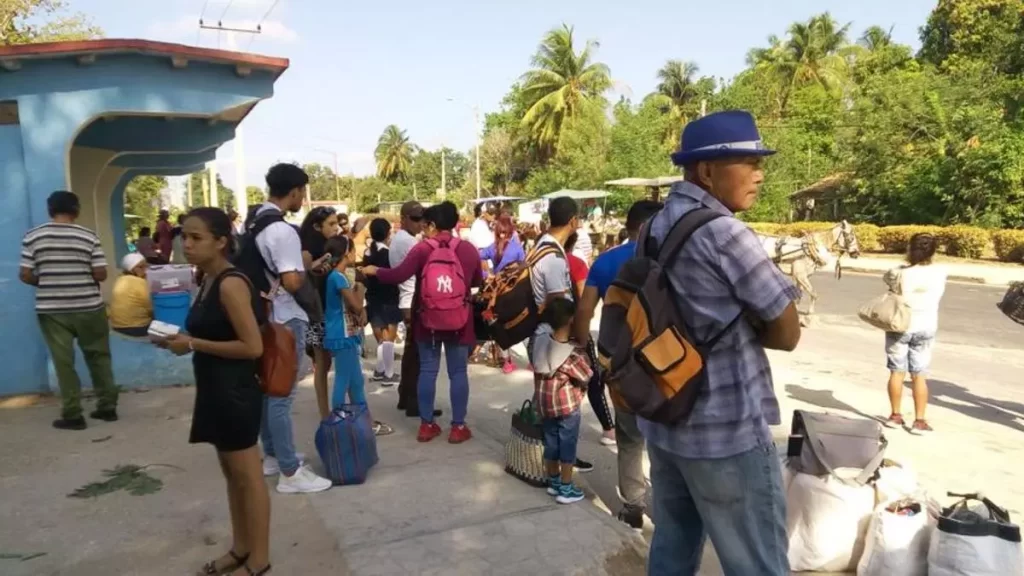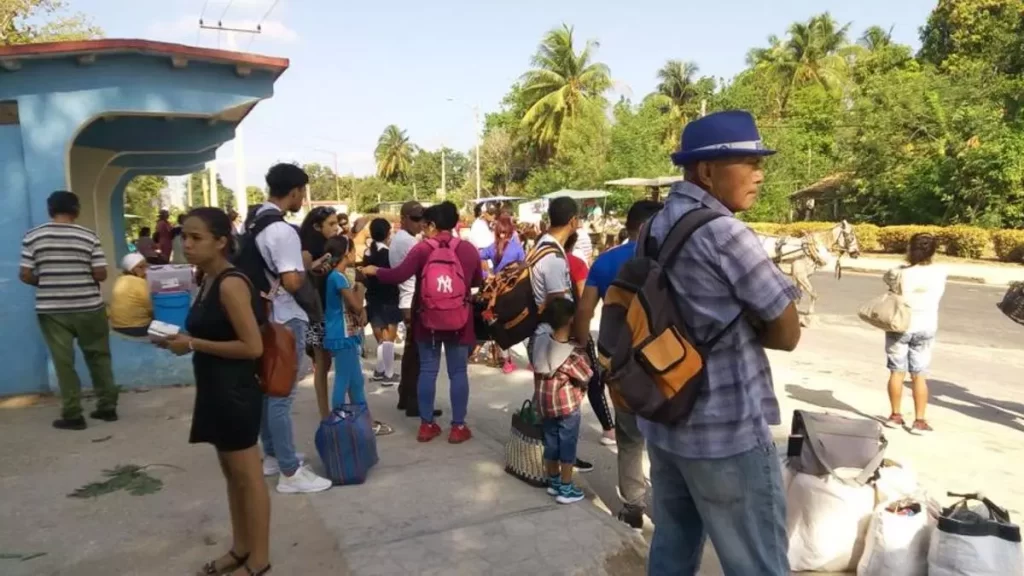Transportation is going through “one of its worst moments,” acknowledges the minister of the sector

14ymedio, Havana, 18 April 2024 — It’s no secret to President Miguel Díaz-Canel that Cuba is a country paralyzed by its transportation crisis and he dedicated this Thursday’s broadcast of his Cuban-style “Hello President” program to the topic. His interlocutor, the Minister of Transportation, Eduardo Rodríguez Dávila, reminded him of the debacle with numbers in hand: five years ago there were twice as many vehicles moving in the country as there are now, which translates into a drop from 5.9 million circulating passengers to 2.7 million.
The minister did not detail what has happened to the 3.2 million passengers who traveled before, nor whether he is referring to public transportation or the entire vehicle fleet of the Island, including private and company cars, but he recounted, before the undaunted face of the president, the troubles of his portfolio. For example, the fact that officials do not stop their cars to pick up passengers at designated stops (as they are required to do); the sanctions that he has had to apply to ensure that this “recommendation” is met; transportation’s effects on the distribution of the basic family basket through the rationing system, which the other ministries attribute to their own management, and, above all, the low availability of foreign currency, which reduces the management of the portfolio in all its areas.
In summary, Rodríguez Dávila concluded, Cuba faces, in terms of transportation, “one of the worst moments in recent years.” Point by point, the headline presented to Díaz-Canel the “distortions” of the sector. To begin with, he insists, the transportation sector “is one of those that generates the most income,” but the difficulties in accessing foreign currency hamper, for example, the acquisition of spare parts, vehicles and other necessary inputs, which are mainly imported.
If the data on these incomes are not made public it is because the country is “under observation”
If the data about these incomes are not made public, Rodríguez Dávila explained with suspicion, it is because the country is “under observation.” “Every time we have a positive result, they generally try to harm it but we really have good results,” he said, without explaining the source of this harassment of the “good results” of the Government.
As a consequence of the absence of foreign currency, the minister explained, companies begin to use parts from non-working vehicles to repair others. In the long run, this “cannibalism” – the president reminded him of the term – implies that there will be vehicles that will never be put into circulation again.
The situation worsens if one takes into account that cars from state companies rarely stop at stops to help transport passengers (as they are required to do) and that private cars increasingly boast more abusive prices. Regarding the first point, both leaders recognized that it is


